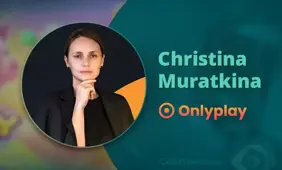Ireland's gambling regulatory framework is undergoing significant changes as the Gambling Regulatory Authority collaborates with the country's main banks to introduce a voluntary block feature for credit and debit cards used in gambling transactions. This initiative, described as a valuable consumer protection measure, reflects the government's broader efforts to address gambling harm and improve safeguards within the sector.

The Irish flag flying on a flagpole. (Source: Shutterstock)
The voluntary block feature has already been introduced by banks such as AIB and EBS, enabling customers to prevent gambling-related transactions on their debit and credit cards. Financial services provider Revolut has also implemented a similar option, allowing users to activate a gambling block on their accounts.
Related: Ireland's Gambling Authority Set to Launch in Phases Next YearThe Gambling Regulatory Authority is working with the Banking and Payments Federation of Ireland to extend this functionality across the country's major banks, ensuring broader access to this protective measure.
According to GRA data, research by the Economic and Social Research Institute (ESRI) underscores the urgency of these measures. According to the institute, individuals experiencing gambling harm spend an average of €1,000 per month on gambling activities. The introduction of voluntary card blocks aims to curb such financial losses by providing individuals with a straightforward way to limit their gambling expenditures.
These developments are part of a broader legislative framework spearheaded by Junior Justice Minister James Browne, which includes new advertising restrictions, the establishment of a national exclusion register, and the creation of a social fund to support problem gambling initiatives. The Gambling Regulatory Authority, now in the process of recruiting senior roles, will oversee the implementation and enforcement of these measures. Gambling companies found in breach of the new regulations may face fines of up to €20 million or 10% of their turnover.
More Responsible Gambling News
 Responsible Gambling
Responsible Gambling
New Jersey Makes Significant Change to Gambling Self-Exclusion Program
Dec 24, 2024 Responsible Gambling
Responsible Gambling
Parlays, Pressure, and Addiction - The Risks of Modern Sports Betting
Dec 20, 2024A Multi-Faceted Approach
The regulator has also focused on educational and preventative initiatives, including the integration of gambling awareness into the SPHE curriculum at both junior and senior levels. This educational effort is complemented by collaboration with HSE Addiction Services on a joint campaign to educate parents about the risks of gambling harm for children and the development of gambling-specific treatment pilots.
Engagement with over 200 stakeholders has informed the regulator's approach, including input from individuals with lived experiences of gambling harm. This consultation has shed light on the psychological and societal impacts of gambling, aiding the authority in its mission to promote education and awareness.
Recent ESRI research highlights the long-term risks of early exposure to gambling, showing that gambling before age 18 nearly doubles the likelihood of problem gambling in adulthood. Additionally, children with a gambling parent are more likely to develop gambling problems themselves.
The authority is also working on establishing a national gambling exclusion register. This register will impose significant penalties on licensed operators who allow excluded individuals to gamble, with fines of up to €20 million and prison sentences of up to five years for non-compliance. To support this effort, the regulator is currently procuring ICT services to implement the register, which will serve as a cornerstone of its enforcement strategy.
RELATED TOPICS: Responsible Gambling
Most Read
Parlays, Pressure, and Addiction - The Risks of Modern Sports Betting
Dec 20, 2024Must Read
 Interviews
Interviews
When Helping Others Is a Life-Long Mission - An Interview with Gordon Moody CEO, Monica Shafaq
Dec 17, 2024 Interviews
Interviews






Review this New Post
Leave a Comment
User Comments
Comments for Ireland's New Gambling Rules to Include Voluntary Block on Credit and Debit Cards